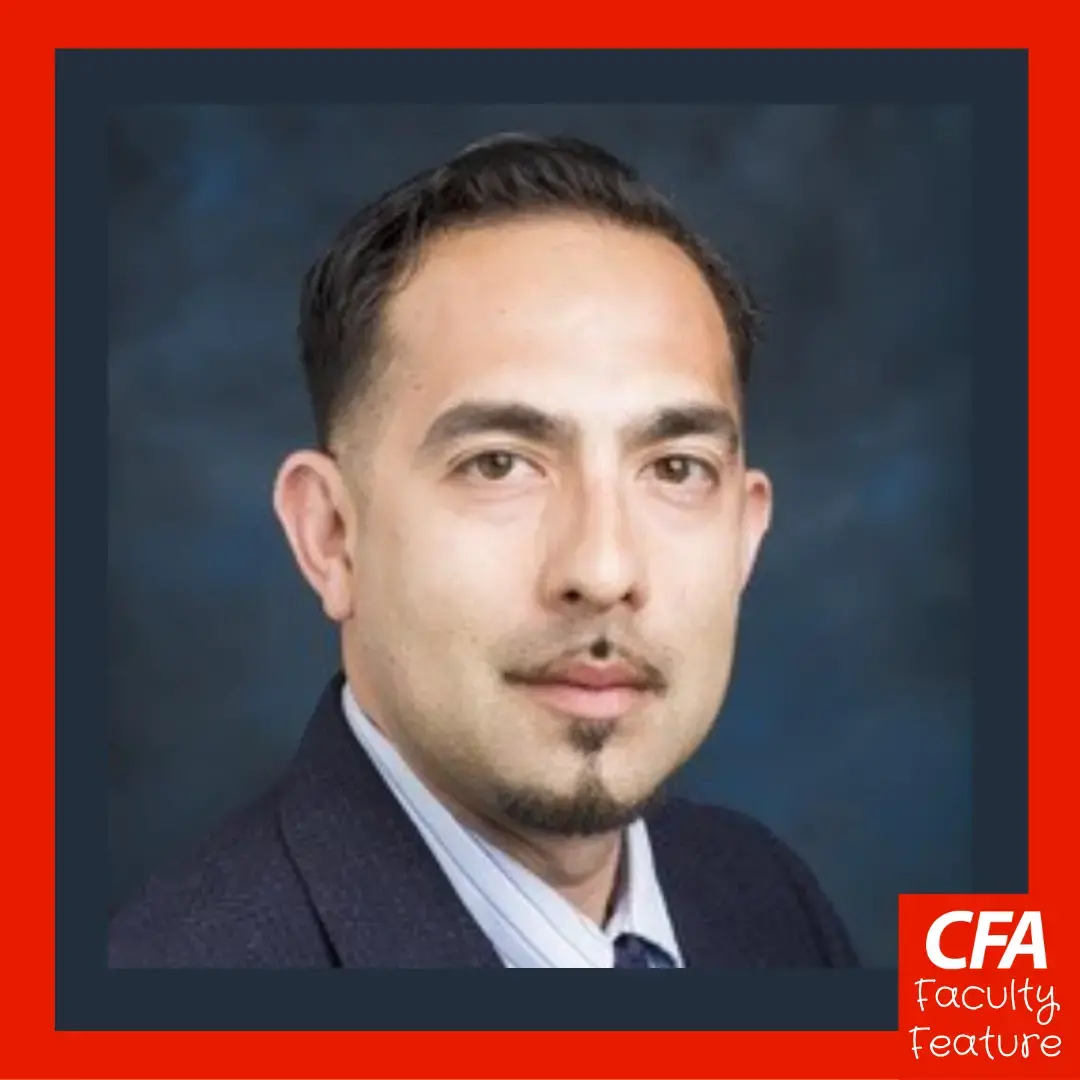Faculty Feature: A Pedagogy of Community Building
CSU Channel Islands Assistant Professor in Chicana/o Studies Dr. Nicholas Centino brings his sensibilities as a scholar and producer of culture into his work as a Chicanx/Latinx Caucus member.

In describing his artistic ability Centino identifies as “an appreciator.” Playing an instrument or painting weren’t his gifts. Instead, his activism, scholarship, and pedagogy are rooted in what Centino describes as “being able to provide opportunities for students to get involved with the production of culture.”
In two of his classes, students complete weekly creative writing responses. Often the introspections become poetry.
“To channel inspiration doesn’t have to be this bolt of lightning. You can reflect and respond to your everyday surroundings,” explained Centino. He further explained that “being asked to see the uniqueness of their own experience” moves students to appreciate, value, and cherish their voices. Some of his students have never been able to explore their “perspectives as minoritized community members.”
It’s rewarding for Centino to notice how “students get interested and involved in parts of their own culture that were dismissed or overlooked. In exploring neglected parts of their identity, they take advantage of the opportunity to see themselves and their practices differently. Students start cherishing those mundane things that normally would not be appreciated.”
Centino’s work is about memory. In knowing who we have been, we can look forward and talk about our aspirations more precisely. Exploring cultural and artistic production allows students to fill knowledge gaps. It contributes to the expansion and retention of collective memory. In practice, this can show up in many ways. For example, along with his students, Centino produced a symposium and concert on the Zoot Suit era.
“It was an avenue for students to start thinking about producing and presenting research. We had student panels about the topic and a band that evening,” Centino explained. “It had the cultural aspect, the research and scholarship aspect, and the professional development aspect.”
Being a cultural producer is also about building a community around aesthetics that binds us in movement spaces. The spaces for artistic expression that Centino curates are rooted in “community building, kinship building that goes beyond networking.”
For Centino CFA’s Chicanx/Latinx Caucus matches his emphasis on community-building.
“Nicholas Centino is a very active member in the Chicanx/Latinx Caucus. He was one of the co-organizers of the Equity Conference last year. As a co-organizer, he brought his expert perspective on Chicanx and Latinx experience and popular cultural practices into the discussion and planning of the Equity Conference in 2021,” said Chicanx/Latinx Caucus co-chair Dr. Michelle Ramos Pellicia. “His work as an activist scholar is instrumental in highlighting our narratives and experiences and pushing against the pressures to ignore and erase us.”
The caucus has a sense of familiarity and community with the added benefit of having movement elders on campus for feedback and support.
“Having an institutional memory of systemwide policies and issues is important. Especially when dealing with obstinate administrators or folks in management. It’s been important to have experienced leaders available and approachable to provide feedback and a reality check,” Centino said.
Like most scholars from historically marginalized communities, Centino was concerned about the isolation inherent in working in historically white institutions.
Through graduate school and into his position at CSU Channel Islands, professional associations like the National Association for Chicana and Chicano Studies (NOCCS) conference offered an opportunity to connect with other like-minded scholars. The Chicanx/Latinx Caucus was an added layer of identification for Centino to sustain himself. Centino is also a member of the Asian/Pacific Islander Desi American and Native American and Indigenous caucus.
As new faculty come in, Centino is moved to continue advocating and participating to “bolster a better working environment.”
“The brothers and sisters nomenclature, it’s not just lip service or a slogan,” said Centino. “You do build a found family with your fellow union members. The Council for Racial & Social Justice’s caucuses play a major role in providing for those types of spaces.”
Join California Faculty Association
Join thousands of instructional faculty, librarians, counselors, and coaches to protect academic freedom, faculty rights, safe workplaces, higher education, student learning, and fight for racial and social justice.